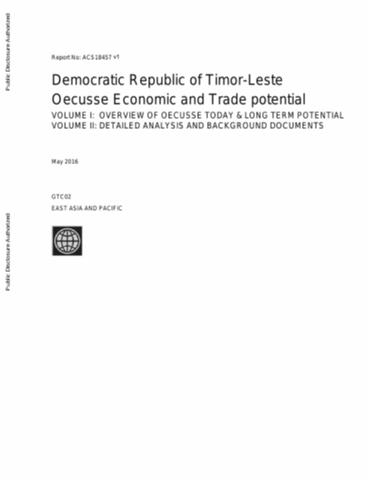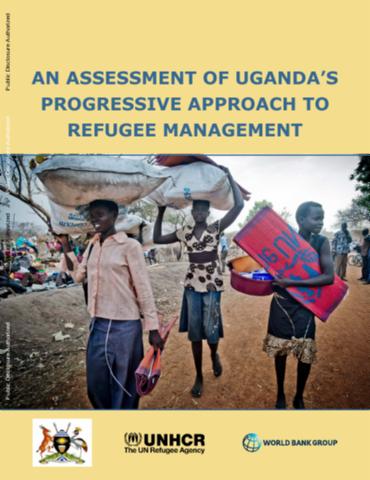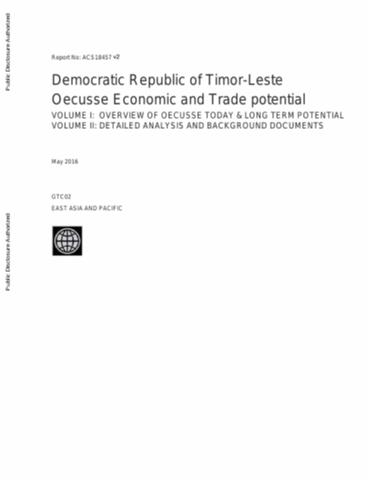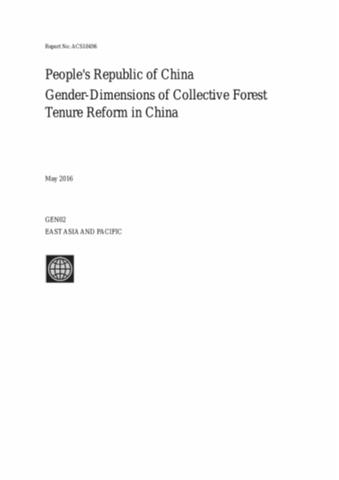The World Bank is a vital source of financial and technical assistance to developing countries around the world. We are not a bank in the ordinary sense but a unique partnership to reduce poverty and support development. The World Bank Group has two ambitious goals: End extreme poverty within a generation and boost shared prosperity.
- To end extreme poverty, the Bank's goal is to decrease the percentage of people living on less than $1.25 a day to no more than 3% by 2030.
- To promote shared prosperity, the goal is to promote income growth of the bottom 40% of the population in each country.
The World Bank Group comprises five institutions managed by their member countries.
The World Bank Group and Land: Working to protect the rights of existing land users and to help secure benefits for smallholder farmers
The World Bank (IBRD and IDA) interacts primarily with governments to increase agricultural productivity, strengthen land tenure policies and improve land governance. More than 90% of the World Bank’s agriculture portfolio focuses on the productivity and access to markets by small holder farmers. Ten percent of our projects focus on the governance of land tenure.
Similarly, investments by the International Finance Corporation (IFC), the World Bank Group’s private sector arm, including those in larger scale enterprises, overwhelmingly support smallholder farmers through improved access to finance, inputs and markets, and as direct suppliers. IFC invests in environmentally and socially sustainable private enterprises in all parts of the value chain (inputs such as irrigation and fertilizers, primary production, processing, transport and storage, traders, and risk management facilities including weather/crop insurance, warehouse financing, etc
For more information, visit the World Bank Group and land and food security (https://www.worldbank.org/en/topic/agriculture/brief/land-and-food-security1
Resources
Displaying 346 - 350 of 4907Timor-Leste - Oecusse Economic and Trade Potential
This report responds to a request from the Government of Timor-Leste (GoTL) and Dr. Mari Alkatiri. The request was for World Bank assistance to collaborate on a range of studies relating to opportunities in the special economic zone, including community development, trade and competitiveness, and regional integration. The analysis builds on a situation analysis prepared by the Zona Especial de Economia Social de Mercado (ZEESM) authority in March 2014.
An Assessment of Uganda's Progressive Approach to Refugee Management
Refugees in Uganda are either self-settled or live in organized settlements that cover approximately 350 square miles of land set aside by the government of Uganda. Many refugees, especially in the northern districts, are in protracted displacement, and the Ugandan constitution prohibits the naturalization of an offspring of a refugee, even if he or she is born in Uganda and even if one parent is Ugandan.
Timor-Leste - Oecusse Economic and Trade Potential
This report responds to a request from the Government of Timor-Leste (GoTL) and Dr. Mari Alkatiri. The request was for World Bank assistance to collaborate on a range of studies relating to opportunities in the special economic zone, including community development, trade and competitiveness, and regional integration. The analysis builds on a situation analysis prepared by the Zona Especial de Economia Social de Mercado (ZEESM) authority in March 2014.
Gender-Dimensions of Collective Forest Tenure Reform in China
The reform of China's collectively owned forest land, began in 2008, is arguably the largest land-reform undertaking in modern times in terms of area and people affected. Under the reform, forest lands have been contracted to rural households, allowing them more independence in exercising their rights and interests in the forest lands, giving them more opportunities to improve family incomes, and creating incentives for them to cultivate, conserve, and manage forests. These lands are home to some 610 million people, many of them poor.
The Kurdistan Region of Iraq
The Kurdistan Region of Iraq (KRI) is a constitutionally recognized semiautonomous region in northern Iraq. Its government, the Kurdistan Regional Government (KRG), based in Erbil, has the right, under the Iraqi constitution of 2005, to exercise legislative, executive, and judicial powers according to the constitution, except in what is listed therein as exclusive powers of the federal authorities. The Iraqi constitution defines the Kurdistan Region as a federal entity of Iraq. KRG has a parliamentary democracy with a regional assembly that consists of 111 seats.










